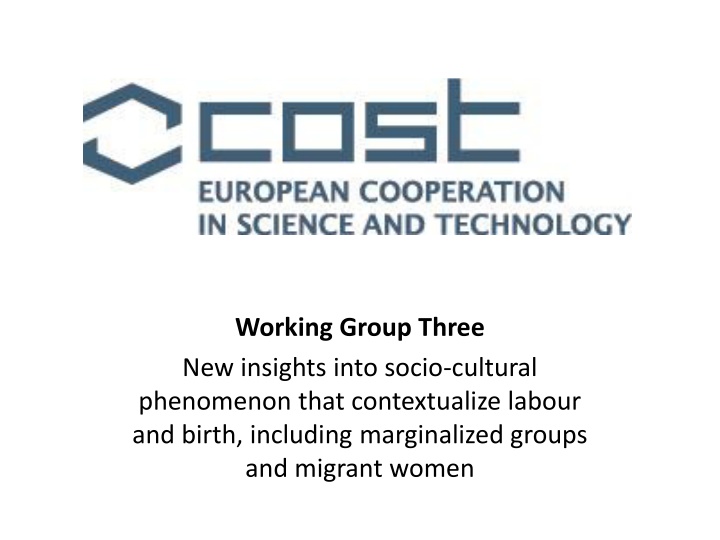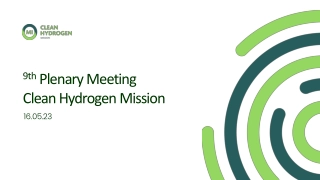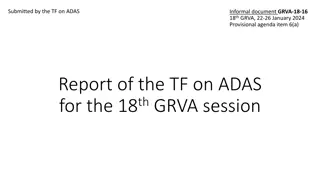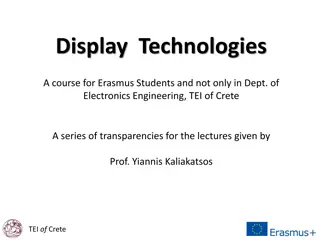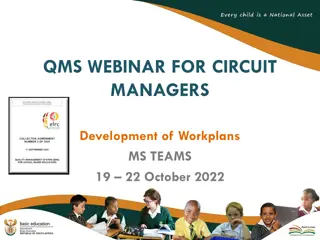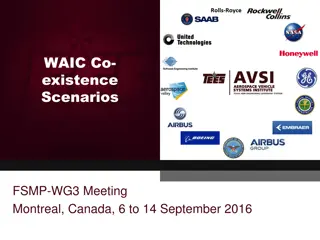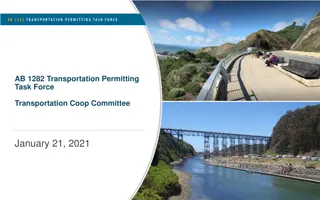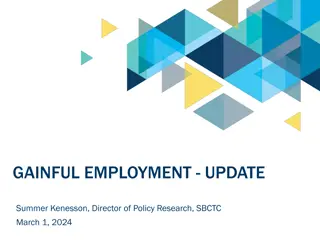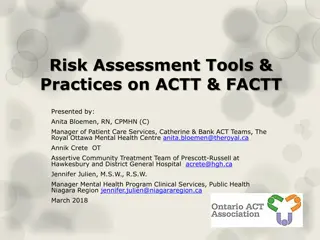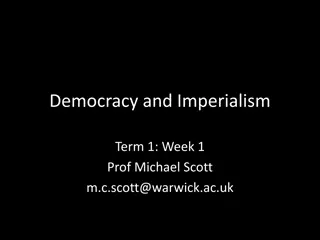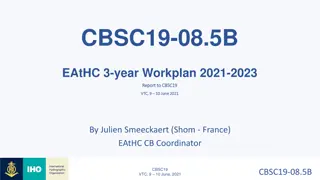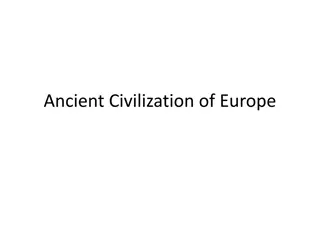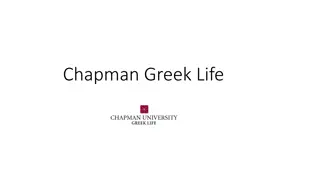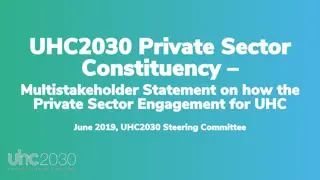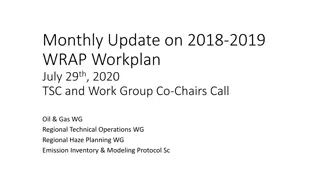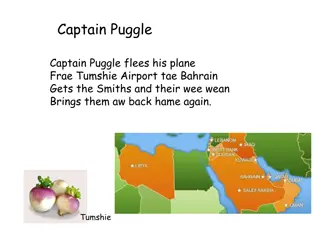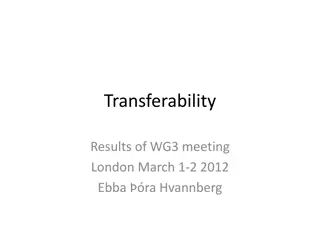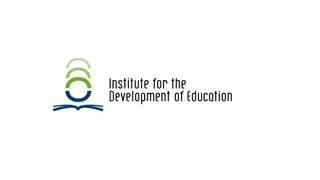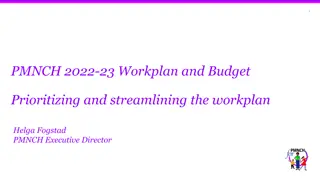New Insights into Socio-Cultural Phenomenon Contextualizing Labour and Birth
Explore the socio-cultural aspects of labour and birth, focusing on marginalized groups and migrant women. The project spans four years, with aims to establish scientific paradigms, conduct systematic reviews, explore funding opportunities, and design implementation studies. Sub-working groups delve into experiences, values in healthcare, migrant women's needs, and satisfaction. Milestones include publication of reviews, grant applications, and study designs.
Download Presentation

Please find below an Image/Link to download the presentation.
The content on the website is provided AS IS for your information and personal use only. It may not be sold, licensed, or shared on other websites without obtaining consent from the author.If you encounter any issues during the download, it is possible that the publisher has removed the file from their server.
You are allowed to download the files provided on this website for personal or commercial use, subject to the condition that they are used lawfully. All files are the property of their respective owners.
The content on the website is provided AS IS for your information and personal use only. It may not be sold, licensed, or shared on other websites without obtaining consent from the author.
E N D
Presentation Transcript
Working Group Three New insights into socio-cultural phenomenon that contextualize labour and birth, including marginalized groups and migrant women
OVERVIEW - WG3 Topic area New insights into socio-cultural phenomenon that contextualize labour and birth, including the effects of dissonance between dominant cultural social expectations including marginalized groups and migrant women
Year One In year one, the main research task is to share scientific paradigms between the diverse disciplinary groups that will make up the Action, and to establish the scope of the methodological and scientific knowledge base that will exist across all Action members
Year Two By the end of year two, all WG's will have submitted for publication detailed descriptions of the current State of the Art in their area. For some WG's this will be a scoping exercise; in others, formal systematic reviews will be undertaken, using meta-analysis, meta-synthesis, and/or meta-narrative. Milestone - Publication of reviews (end of year two end of 2016)
Year Three To explore funding opportunities to undertake specific studies, could include: a socio-cultural exploration of dominant models and places of birth and associated care pathways in different national settings; exchanging data on how maternal services in different countries are enhancing access and adapting services based on women s expressed needs, including for marginalized groups, such as migrant women. Ethnographic case studies of socio-cultural phenomenon that contextualize labour and birth where there is variation that cannot be explained by case-mix/risk status What works well, for who, in what circumstances can be used to design implementation studies for sites that are not identified in the top quartile in each participating country. Work in this WG will pay particular attention to the views, experiences and aspirations of service users. Milestones: study design (based on reviews) Grant applications end of 2017
Year Four Continue publications Grant applications
Sub-working groups for WG3 Group One (experiences) lead Zora Raboteg- Saric - zora.raboteg-saric@pilar.hr Group Two (values in health care) lead Sarah Church - churchs@lsbu.ac.uk Group Three (migrant women) lead Marie- clare Balaam & Mel Cooper - m.Cooper2@bradford.ac.uk; mbalaam@uclan.ac.uk Group four (satisfaction and culture) lead Jo White - jowhite67@yahoo.co.uk
Sub-group Childbirth experience (lead Z. Raboteg-Saric) Topic 1 : Women's experiences of labour and birth: a review of multidimensional assessment tools (Zora Raboteg-Saric, Gracia Maroto & Camila Higueras) Progress: Draft plan of aims and methodology (search strategy, keywords, inclusion/exclusion criteria) developed Literature search completed Selection of eligible studies in progress Outcome: paper submitted by December 2016
Topic 2 Optimizing childbirth in Croatia the best things about care (A. Mujkic, Z. Raboteg-Saric & A. Brajsa-Zganec) Work in progress: finalising the paper Outcome: paper submitted by January 2017
Topic 3 Survey Development Z. Raboteg-Saric: Worked on the development of the new version of BBB survey (July 2015 January 2016) Translation of the new survey to Croatian language (Zora Raboteg-Saric) - finalised Future work/interests: to explore opportunities to undertake cross-cultural study of women s childbirth experiences based on new BBB survey data Output a paper on this data
Group two Values in health care Sarah Church Topic 1 Conscientious objection and health care professionals Flemming et al paper submitted to Journal of Medical Ethics
Topic 2 A critical discussion of values underpinning maternity care across Czech Republic, Turkey, Hungary and the UK - Sarah Church, Ema Hresanova, Serap Ejder, Ay e Parlak G rol and Orsi Hubert paper progressing well submission anticipated in the next 3 months. The concept of woman-centred care: a comparison of maternity services between the UK and Czech Republic. Dr Sarah Church & Dr Ema Hresanova - paper in progress based on STSM completed in April 2016. Further research is being planned on the basis of the STSM - proposal being developed and funding being explored at present. Outcomes papers and possible grants
Topic 3 Student midwives' perspective on the ethics of abortions: A qualitative study The data has been collected data, analysis in progress. Ay e Parlak G rol, Sarah Church and Serap Apay Outcome -
Group - migrant women lead Marie-Clare Balaam & Mel Cooper - Topic 1a - Concept analysis of pregnant migrant women followed by work on discourse analysis of terminology used in different discourses. Progress/ next steps: Work on going analysis underway submit paper to International journal of Nursing Practice January 2017
Topic 1 b: Investigation of access policies for migrant women across Europe (Marie-Clare, Dineke (has had to withdraw), Mel, Valerie, Alena, Sanja, Triin) Progress: template distributed to COST Action some results in, but agreed to re send to ensure wider coverage Next steps collation of data & initial (descriptive) analysis to be undertaken December 2016: Need to identify lead person and establish time plan for this. MCB will send round recap & try to move this on by contacting people who may be interested and writing up a clear description of what we are trying to do, but we need people who will actively take this further. Sanja has indicated that she is interested in working on this area.
Topic 2: Using existing BBB data, examine the current data on migrant women Topic 2 a: General migrant data from survey - (MC, MCB, Naseerah) Progress: Data obtained and cleaned by Jenny, Tomasina (with support from Marina), next steps analysis of data and consideration of whole data set which is now available, although we do not have ethics from the use the later data set) Dineke, Tomasina and Jenny are no longer involved in the work we are hoping to ask our colleague Naseerah to support us with this) Data set produced and initial analysis work done on this by Mel Cooper s daughter report produced. December 2016: Colleague of Mel at Bradford University will take this forwards beginning January 2017
Topic 2 b: Use BBB data to focus on the Czech Republic Czech women giving birth abroad and non Czech women giving birth in the CR & identify and map the movement from east to west or reversely. (Alena) December 2016: project progressing article will be published in Czech language publication.
Topic 3 - Interventions for migrant womens perinatal mental health - Research student at Bradford now completed systematic review of interventions for all women rather than migrant women. (Mel) Do psychosocial interventions have an impact on maternal perceptions of perinatal depression? These findings will be used to inform work on an intervention for migrant women. PhD project on this
Tentative Projects Topic 4 4.A - Discourse analysis looking at the different country/cultural contexts of maternity care for migrant women considering changes in discursive practices over time and in national contexts. Done by individuals in their national contexts Membership/Lead ??? Explore further after concept analysis 4.B Women who move to avoid maternity care in their country Members: Alena, Triin, Jetta Discussion via on the detailed focus of the project. It will focus on women who travel to avoid particular treatment and to get treatment they prefer. It would be about unfulfilled expectation of women in their home countries and seeking the alternative abroad. Probably it will be a case study. Final research design should be ready at the end of the year. End of year have a research plan
4.C Critical Medical Anthropology (CMA) Ethical and methodological issues to working with pregnant migrant women Members: Sanja (Lead), Marie-Clare, Mel, Rose, Valerie The aim is to map-out public health/clinical /social support (based on our personal work experience) primarily regarding reproductive themes, with the aim of exposing ethical and methodological issues. Through a multileveled CMA analysis we will tackle problems of researching marginalized populations with a special concern given to the challenges of individual/civil servant, professional and macro level of action. At the moment I am working on a draft summary that will make things easier for the group s thematic entry into the field.
Outputs Outputs/ other Marie-Clare, Dineke, Mel and Charles have completed a chapter Asylum seekers & refugees: A cross European perspective in a forthcoming Routledge book Psychosocial Resilience and Risk in the Perinatal Period: Implications and Guidance for Professionals STSM Katar na Gre kovi ov applied to come from Slovakia to work with Marie-Clare, Mel and Rose on improving maternity care for migrant women. (Autumn 2016) Article (not product of COST but relevant to group ) Balaam et al. 'We make them feel special': the experiences of voluntary sector workers supporting asylum seeking and refugee women during pregnancy and early motherhood Midwifery DOI: 10.1016/j.midw.2015.12.003 Topic 3- Conduct focus groups with migrant women/hard to reach women to refine questionnaire. Migrant women translate questionnaire into different languages (BBB survey) - This has been completed & reported to BBB steering group
Grants Alena and Ema have been successful in gaining a grant Migration and maternal health: pregnancy, birth and early parenting from the Czech Science foundation We aim to understand what key factors have shaped migrant women s maternal health, and expectations and experiences related to antenatal, birth and newborn care, and what role the existing institutional framework plays in this regard.
Valerie Fleming and Antoinette de Preez joint application to National Science Foundations of Switzerland and South Africa for a project entitled New land: new life: Strategies to improve the maternal and perinatal outcome of refugee women in Switzerland and South Africa . Expected decision end 2016.
Other activities Reflective writing work Two colleagues who have been/are currently working in refugee camps in Europe have written about their experiences. Published in The Practising Midwife Journal. Work on Roma Communities experience of maternity care in Hungary Erika and her organisation have produced a report on the situation for Roma women and maternity care within Hungary.
Marina Weckend Reflections of a midwife in a German refugee camp The Practising Midwife November 2016 http://www.practisingmidwife.co.uk/tpmindex.php Abstract - In response to the Syrian war and other conflicts, a large number of refugees arrived in Germany in summer 2015. Unprepared for the arrivals, many communities had to set up emergency accommodation to bridge the time between their arrival and the allocation of permanent housing. In a remote camp with up to 1,700 residents, Marina Weckend set up a midwifery service to reach out directly to women and their families. The service was facilitated by the German Asylum Seekers Benefit Act, which states that all maternity care, including referrals and prescriptions have to be accessible and free of charge for asylum seekers. In this article, Marina recounts the stories of three families whose experiences highlight the meaning and importance of health care access, acceptability and equity, particularly for women and families with a background of displacement.
Group 4 - Sub-group satisfaction led Jo White Aim - To conduct a critical review of existing literature on measuring women s satisfaction and publish a paper based on this review - tasks: preparing search terms (translating terms, agreeing) agree databases, carry out searches - searches carried out - data analysed November 2016 Outcome - paper
Sub-group - Cultural markers theoretical entry point (Ema lead) paper; developing pathways (UK, Czech Republic, Portugal, Netherlands) deadlines end 2016 draft paper
New sub-group - comparisons Cross-cultural/European comparisons Triin Roosalus ideas welcome as to what areas people what want to explore Idea to have an overview of maternity care in each country(chose countries and use B3 data) as a starting point (Marina & Triin) Create an overview report over maternity care in Europe from various perspectives. Thinking about NGOs, maternity staff Make links with WG4 and wider WG3
Funding sources - how to take the work forward we need to focus on getting further work funded State of the art book led by Olga each WG expected to produce 1 or 2 book chapters Early career representative for WG3 is now Triin Roosalus
To do Short overview of WG3 for website Circulate WG PowerPoints Make links between WGs and within WG Regular skype calls Book chapter/s plans for Olga by mid-October 2016 Need work plan for next year Including possible grant applications Top key outputs for Soo, please send me any outputs (publications, presentations, other activities) so I can log them Open access issues (prioritisation)
GOALS AS SET OUT IN MEMO OF UNDERSTANDING (WHAT WE SAID WE WOULD DO TO COST)
Grant agreement period goals - WG3 1 By April 2017, WG1-5 will have submitted for publication detailed descriptions of the current State of the Art in their area WP3 Outputs: 2 N/A 3 By April 2017, points of intellectual, theoretical & practical commonality across some or all of the WGs will have been discussed, agreed, & summarized in academic outputs 4 By April 2017 protocols will be drafted for comparative implementation studies to assess the impact of new & optimal ways of providing maternity care WP3 Outputs: 5 N/A 6 N/A 7 N/A
8 N/A 9 By April 2017, ethnographic case studies will be designed to assess socio-cultural phenomenon that contextualize labour & birth where there is variation that cannot be explained by case-mix/risk Status WP3 Outputs 10 By April 2017, specific studies will be designed to assess how marginalised/migrant pregnant women engage with maternity services, & their experiences of services WP3 Outputs 11 By December 2016, the B3 survey will be extended, & the data will be used to identify what works well, for who, in what circumstances WP3 contributions to B3 12 N/A 13 By April 2017, WG4 will have an agreed protocol for depth organizational case studies of sites identified as providing optimal maternity care WP3 and WP4 14 N/A
Grant agreement period goals 15 N/A 16 By April 2017, WG6 will have synthesised the outputs from WG1-5, on the basis of both what works, for who, in what circumstances , & the Original & synthesised findings & insights will be uploaded on to the Action website and disseminated widely through current & new e-and m-technologies
